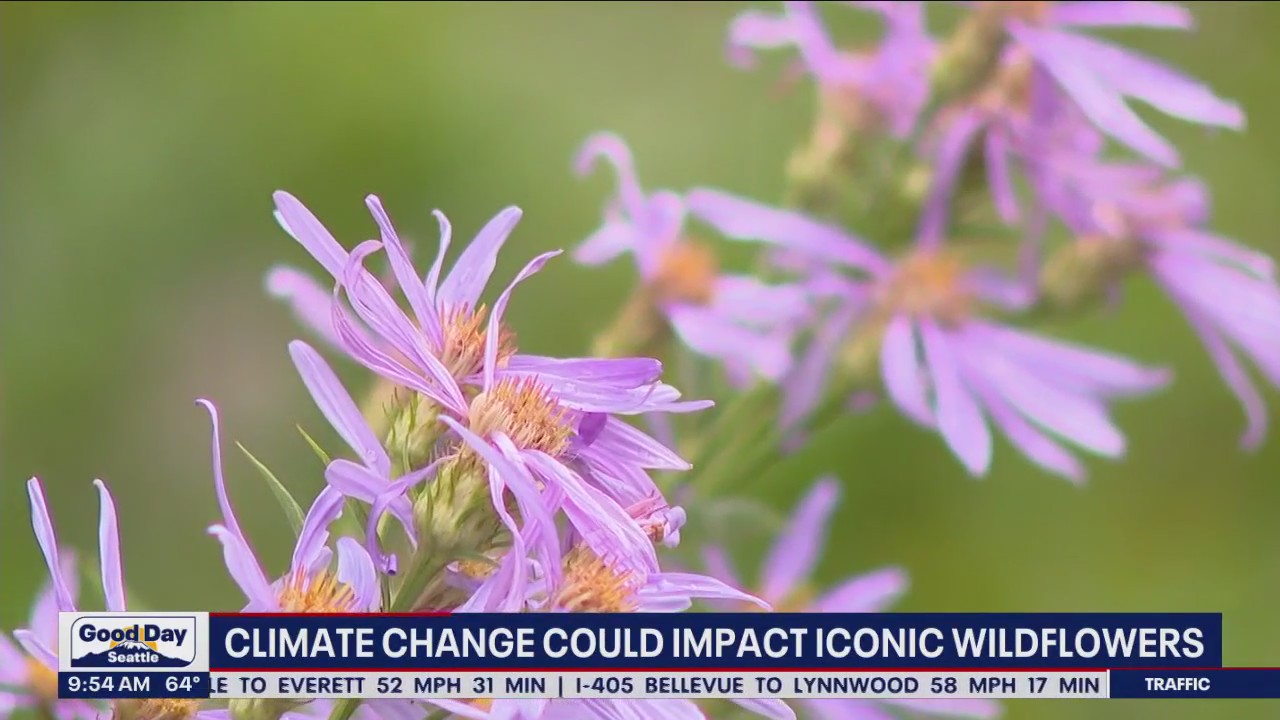Climate change could impact Pacific Northwest's iconic wildflowers, research finds

Climate change could impact iconic wildflowers
Climate change is expected to have a negative impact on the iconic wildflowers at Mount Rainier.
SEATTLE - Right now, scientists in our state are closely tracking how climate change is impacting the world-renowned wildflowers at Mount Rainier.
Unless carbon emissions are slashed in the decades ahead, researchers expect that snow in Rainier’s meadows could melt months earlier than usual by the end of the century. This could have an impact on visitors at Rainier.
At Mount Rainier, wildflowers dazzle and amaze the hundreds of thousands of tourists that come to the mountain every spring and summer. Research from the University of Washington shows that as climate change continues, some visitors could miss out on the peak bloom altogether.
The bloom of many wildflower species on Rainier depends on when the snow melts every year. In a warming climate, the snow is expected to melt earlier in the season, meaning flowers bloom earlier.
Research in recent years from the UW shows that some visitors could miss out on the flowers entirely if the peak happens before tourism season in the summer.
Still, a recent study indicates that visitors report that they enjoy other things about visiting Rainier as well.
"I still think it will be an absolutely spectacular place to go," said Wendy Gibble, associate director of the University of Washington Botanic Gardens. "And I know I will not stop going. It'll be absolutely scenic, just might be a bit different than what we had experienced."
Gibble says climate change could lead to less ‘synchronicity,’ meaning peak bloom might be much less pronounced, in addition to happening earlier.
Some scientists are concerned that pollinators like bees could be impacted by the timing of when the flowers bloom.
"So pollinators have always taken advantage of that synchronous bloom that happens in the deep snow belt," explained Gibble. "That might change, and we don't know how these pollination seed set will be affected."
RELATED: Larch Madness: Frustrations grow over big crowds on local trails
She notes it’s not all bad news; some flower species could benefit as temps continue to warm, it just varies by species. Some plants that normally thrive in lower elevations, including tree species, could start moving into higher elevations as climate change continues, and this invasion could threaten other important plants.
"There's a couple of species, a few species that occur only at Mount Rainier. These are really special. And so I worry for those species, where will they go?" said Gibble.
If you want to get involved and volunteer to monitor these stunning wildflowers, you can apply at the MeadoWatch website.

